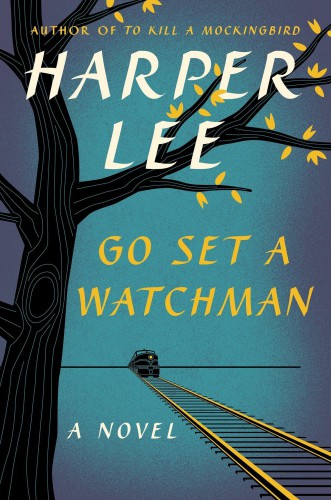 NEW NOVEL COMPELS fans of literary classic To Kill a Mockingbird.
NEW NOVEL COMPELS fans of literary classic To Kill a Mockingbird.Following the astronomical success of her breakout novel To Kill A Mockingbird, author Harper Lee quickly retreated into a self-imposed exile from most literary circles; for more than fifty years, Lee has enjoyed a comfortable retirement as a consequence of her instant classic. Her first novel was a carefully composed critique of the racially backhanded society that plagued a large part of the South through the late 1960s. Lee’s story creates a narrative centered around the young, spirited, and gracelessly female protagonist Scout. Lee’s novel served as a romanticized account of growing up in the midst of a deeply concerned community, as well as a dark warning about the dangers of a hive-mind mentality.
However, in 2015, Lee reemerged onto the literary scene with the announcement of her new installment for the story generated in To Kill A Mockingbird. The author’s newest book, Go Set A Watchman, takes place roughly 15 years after the events in To Kill A Mockingbird, and follows Scout as she returns from her newfound adulthood in New York to visit her stomping ground of Maycomb, Alabama.
One of the most striking differences between the two novels comes through the narrative provided by Scout, who has adjusted to womanhood and now goes by a stiff and haughty Jean Louise.
The creation of Jean Louise is masterful—while the voice of the protagonist is clearly more adult than that of Scout, Lee has carefully kept the undertones of fearlessness and virtue entirely intact within her main character as she has matured. The nuance of Scout’s character lies in the fact that she’s entirely recognizable but stops short of being derivative.
Jean Louise’s triumphant return to Maycomb is marred by the sense of alienation that she has developed from moving north; the backbone of the plot comes from the fact that the protagonist has lost the lens of adolescent nonchalance that allowed her to fall in love with the South. Instead, Jean Louise is confronted with the brutal reality of having her relationships marred by institutional racism.
The largest instance of this pivotal shift in the character of Maycomb comes in the form of Atticus Finch’s newly reconsidered pro-segregation tendencies—despite being a pillar of virtue in the previous novel by serving as the lawyer for a man unjustly accused of rape, Atticus demonstrates extreme racial biases by standing in for a town hall committee designed to enforce a separation of the races. Within this dynamic, Lee enforces a sense of internal conflict as Jean Louise struggles to compromise with the humanity of her father, as well as an incredibly emotional dispute as Jean Louise rejects the reality of Maycomb.
By forcing Jean Louise to interact with the realities of Southern politics, the author forces the lighthearted image of Maycomb constructed in the earlier book to collapse under the weight of adult responsibilities—at every glance, something that Jean Louise cherished in her childhood is fundamentally altered in a way that leaves her floundering for a sense of familiarity.
The craft of Go Set A Watchman lies in its full-bodied acknowledgement of the fact that the world of To Kill A Mockingbird was never perfect.
